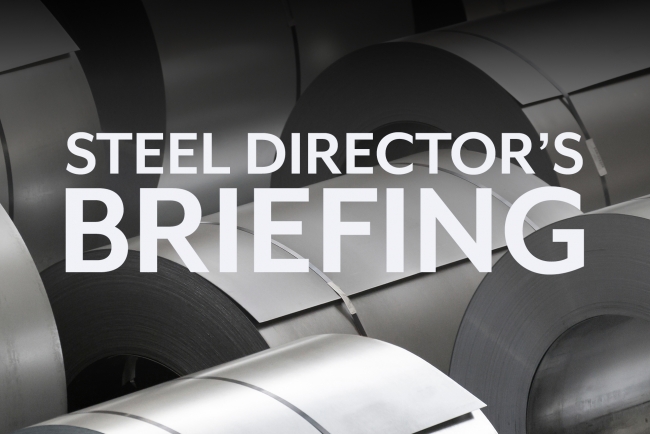Supply Challenges Continue to Impact European Steel Mills
 Steel Director’s Briefing - Supply Challenges Continue to Impact European Steel Mills
Steel Director’s Briefing - Supply Challenges Continue to Impact European Steel Mills

As we reported last month, the European steel market has been grappling with a number of supply-side issues in recent times, with some gaps appearing in terms of stock availability for specific products. Consequently, European steel mills have continued to take the opportunity to further increase prices.
Turkish steel producers remain off the market, with their focus very much on the devastation caused by the recent earthquake. In addition, the declaration of force majeure at Tata Steel Netherland’s Ijmuiden plant continued to disrupt supply in Europe.
There won’t be a quick fix for the issues being experienced in Ijmuiden, and with Tata UK supporting Tata NL, available capacity within the business is significantly reduced in both the Netherlands and the UK. This disruption is expected to persist for most of 2023. Arcelor in France and Spain have also experienced their own production problems, reportedly losing around 1million tonnes of output recently.
As a result of these issues, European steel supplies remain very tight, with lead times longer than normal. Swedish Steel, Arcelor, and Thyssen are all quoting Q3 supply, with Thyssen even quoting September for some products, which indicates that supply-side issues and stock shortages are likely to persist for some time to come.
Outside of Europe, offers from Korea, Taiwan and Vietnam are now for August arrival, with exchange rate fluctuations making this slightly more attractive. However, it is not an obvious temptation for buyers. As things stand, at a service centre level, supply and demand seem to be fairly well aligned. However, both service centres and end-users are treading carefully.
Although we haven't reached the peaks of 2021 and 2022, prices are historically high. Buyer sentiment is that this is driven by the reduced capacity rather than real-world demand. Given the rapid price falls experienced last year, it is no surprise that they are reluctant to re-stock and remain cautious.
At a Government level, there appears to be very little discussion around long-term manufacturing policy, with one eye seemingly on the election next year. This lack of focus on the long term will not help to alleviate the supply-side issues that the industry is currently facing.
Looking forward, the question is what will happen when production capacity returns? Will demand have improved? Turkey will at some point resume exports and import tonnes may become more attractive. For these reasons confidence is not a word you would use to describe market sentiment. Things are very much "wait and see" at present.
